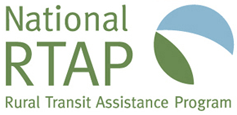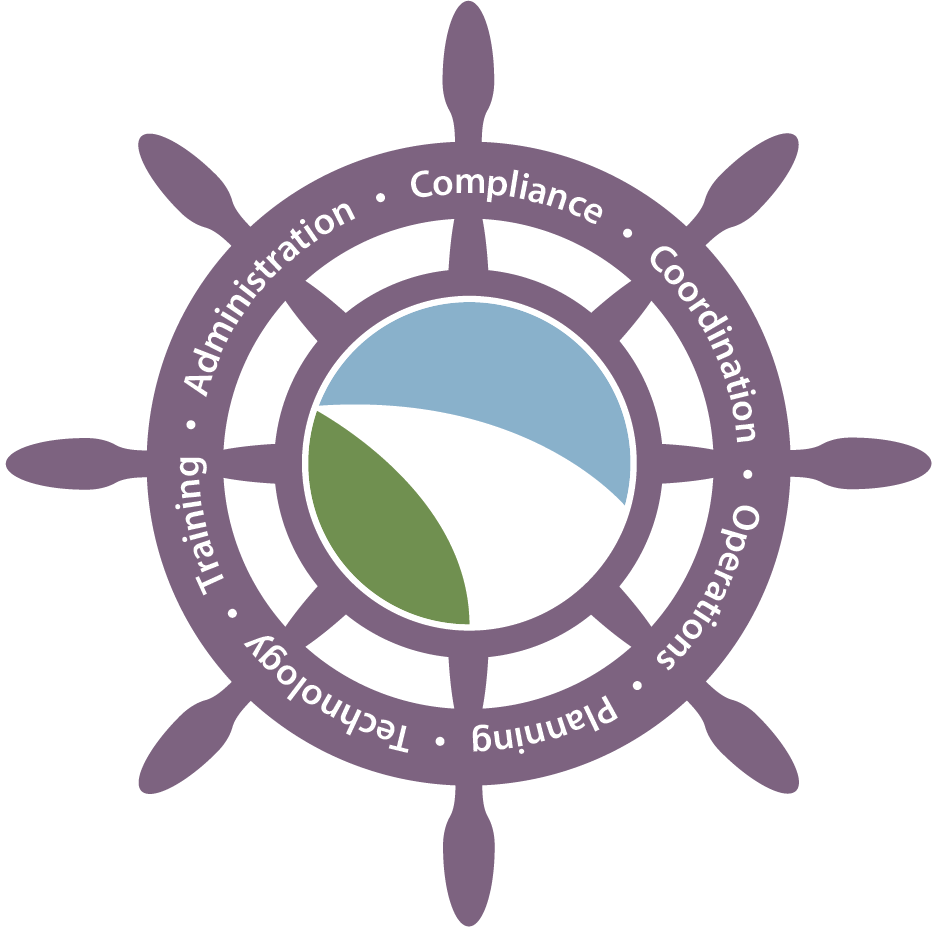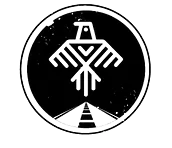National RTAP Tribal Transit Program
TRIBAL TRANSIT
Need Help?
Submit a brief form to get help with a question or challenge you are facing.
Want us to participate in your conference?
Fill out a brief form and we will reply with how we can meet your needs.
This lists technical assistance and training resources geared to Tribal Transit managers, staff, and riders.
Tribal Transit Peer Forum
This private Forum is a place for sharing questions and information. National RTAP staff monitor the forum and help provide answers not fully addressed by peers.
Tribal Transit Awards
The awards were presented at our 2023 and 2019 Conferences to honor outstanding tribal transit agencies and staff.
Tribal Transit Events
Upcoming Tribal Events:
Intertribal Transportation Association (ITA) Annual Meeting, Oklahoma City, OK, January 13-15, 2026
National RTAP / Transportation Safety Institute (TSI)
Fundamentals of Bus Collision Investigation
Hollywood, FL, March 9-13
Contact
Neil Rodriguez for registration information.
See full description below.
Tribal Scholarships
We provided scholarships to several tribal transit agencies for our Conference in Myrtle Beach, December 3-6, 2023.
Other Tribal Transit events National RTAP has hosted or participated in:
- Tribal and Rural Transit Mini Conference, Rapid City, SD, October 14-15, 2025
- Tribal and Rural Transit Mini Conference, Santa Fe, NM, June 24-26, 2025
- Capital Projects and Mobility Management Training, Anchorage, AK, March 24-28, 2025
- Transit Capital Projects Training with the Alaska Tribal Transportation Working Group, Anchorage, AK, 2023
- National Transportation in Indian Country Conference, Louisville, KY, 2022
- Tribal Transit Capital Project Development Training, Flagstaff, AZ, 2022
- Tribal Transit Mini-Conference, Anchorage, AK, 2022
- Tribal Transit Mini-Conferences, Minnesota, Montana, and Oklahoma, 2021
National RTAP / Transportation Safety Institute (TSI)
Fundamentals of Bus Collision Investigation
March 9-13, 2026
Contact Neil Rodriguez for registration information. You will be added to the list or waitlist.
Hotel Room Block: Hampton Inn & Suites Fort Lauderdale Airport South-Cruise Port, 2500 Stirling Rd, Hollywood, FL 33020
954-922-0011, Booking Link
This course includes basic investigation tools and techniques relating to data collection, on-scene evidence documentation, damage and debris evidence analysis, witness interview techniques, computation of simple speed estimates, and report writing. Implementation of techniques learned can greatly improve the effectiveness of accident investigations and root-cause analysis. This course requires a working knowledge of basic high school algebra. The instructor team utilizes multiple scenario-based classroom practice exercises, to effectively assist participants in understanding the use of mathematical formulas to determine various elements related to bus collisions.
Course Elements
- SMS-based practical applications used to reduce bus collisions and Chain-of-Events in a collision
- Center of mass and evaluating damage and debris
- Interpretation and measurement of marks on the road
- General principles of collision investigation, math and use of calculators
- Minimum speed estimates from skid marks and yaw marks
- Interview techniques
- Principles of field sketching
- Photography
- Collision case preparation and presentation workshop
- Outdoor exercise (PPE required: leather upper/closed toe shoes)
- Pretest, quizzes, homework, group presentations, final exam
Who Should Attend:
Bus Operator Trainers, Collision Investigators, On-scene Investigators, Investigation Policy Developers, Investigation Policy Administrators and Implementers, Reporting Personnel, Investigation Policy Implementers, Safety Managers, Safety Supervisors, Operations Supervisors, Risk Managers, Field Supervisors, Operations Managers, Maintenance Managers, and Maintenance Supervisors.
How You Will Benefit:
- Identify your responsibilities during a collision investigation
- Select and apply the correct formulas to determine minimum speed from skid marks
- Assemble the collision investigation
- Interpret skid and other types of marks on the road
- Drag factor and how to construct a drag sled
- Field sketching methodology and templates
- Interview techniques, including witnesses and employees
- Assembly of collision investigation documentation, checklists, report writing
- Investigation tools
- Fatigue awareness and countermeasures
- Collision scene photography
- Determining the drag factor, grade, curve, radius, field sketching, and measurement
- Determination of variances for grades, super-elevation, and faulty brakes
What You Will Learn:
- Chain of events and contributing factors: equipment, environment and human
- Evidence analysis, documentation, and lamp inspection
- Interpretation of skids and other marks on the road
- Fundamentals of collision investigation math, review of high school algebra
About the FTA Tribal Transit Program
The Federal Transit Administration’s Public Transportation on Indian Reservation Roads program, or Tribal Transit Program (TTP), provides funding to federally recognized tribes for capital, operating, planning, and administrative expenses for public transit projects that meet the growing needs of rural tribal communities.
History
Originally established as a discretionary funding program by SAFETEA-LU in 2006, the TTP was revised in 2012 under MAP-21 to include both a discretionary and a formula component. Formula funds were allocated to eligible tribes for the first time in federal FY 2013, in accordance with a formula outlined in MAP-21 and after consultation with Indian tribes.
Current Program
The FAST Act (December 4, 2015) authorized funding for the Tribal Transit Program for FY 2016-2021 as a set-aside from the Formula Grants for Rural Areas (Section 5311) program, with $30 million formula program and a $5 million competitive grant program. A 10% local match was required under the competitive program, however, there was no local match required under the formula program.
The Bipartisan Infrastructure Law, as enacted in the Infrastructure Investment and Jobs Act, authorizes funding for the TTP for FY 2022-2026. The TTP continues to be a set-aside from the Section 5311 program. For FY 2022, the funding consists of a $35 million formula program and a $9 million competitive grant program, subject to appropriations. The funding is set to increase incrementally over four years.
For more information about the TTP, including formula funding allocations, discretionary projects awarded, and training materials, visit FTA's Tribal Transit Program page.
On October 1, 2020, a new Tribal Transportation Self-Governance Program (TTSGP) final rule became effective, providing federally recognized Tribes and Tribal organizations with greater control, flexibility, and decision-making authority over federal funds used to carry out tribal transportation programs, functions, services, and activities (PFSAs) in tribal communities. The TTSGP also affords Tribes and Tribal organizations with specific rights and federal resources to implement and support their Self-Governance programs. To learn more, visit the U.S. DOT Tribal Transportation Self-Governance Program page.
FTA Regional Tribal Liaisons
Each FTA Region has one or more FTA Tribal Liaisons. They are available to assist Tribal FTA grant recipients.
Updated January 7, 2026

National RTAP offers one-stop shopping for rural and tribal transit technical assistance products and services. Call, email, or chat with us and if we can’t help with your request, we’ll connect you with someone who can!
" National RTAP offers one-stop shopping for rural and tribal transit technical assistance products and services. Call, email, or chat with us and if we can’t help with your request, we’ll connect you with someone who can! "
Robin Phillips, Executive Director
" You go above and beyond and I wanted to let you know that I appreciate it so much and always enjoy my time with you. The presentations give me so much to bring back to my agency and my subrecipients. "
Amy Rast, Public Transit Coordinator Vermont Agency of Transportation (VTrans)
" I always used the CASE (Copy And Steal Everything) method to develop training materials until I discovered RTAP. They give it to you for free. Use it! "
John Filippone, former National RTAP Review Board Chair
" National RTAP provides an essential service to rural and small transit agencies. The products are provided at no cost and help agencies maximize their resources and ensure that their employees are trained in all aspects of passenger service. "
Dan Harrigan, Former National RTAP Review Board Chair
" We were able to deploy online trip planning for Glasgow Transit in less than
90 days using GTFS Builder. Trip planning information displays in a riders'
native language, which supports gencies in travel training and meeting Title VI
mandates. "
Tyler Graham, Regional Transportation Planner Barren River Area Development District
Slide title
" Having a tool like GTFS Builder is really light years ahead of what it used to be at one time in terms of how fast you can put everything together. Our university students really can't imagine transit without it, so I think it's very important for us in terms of attracting that particular demographic. "
Michael Lachman, Transportation Services Manager HAPCAP - Athens Transit
Slide title
" In the past we used proprietary database software that was very challenging, very murky, and hard to update. GTFS Builder is a great opportunity to make this more user-friendly, more readily updatable and it
would enable us to show how to create a GTFS to more of the staff. "
Jaime McKay, Former Manager of Direct Services Center for Mobility Equity
Slide title
" Collaboration is a buzz word these days in the industry. On behalf of our Tribal segment, I appreciate RTAP for making Tribes a partner in industry opportunities. The organization goes over and beyond reaching partners one would not expect in a busy industry such as public transportation. Thank you for your tireless efforts! "
Franklin Akoneto, Comanche Nation
Slide title
"We are so very thankful for all your transportation training materials. Your resources are as valuable as gold!"
Holly Walton, Transportation Assistant Manager, Curative Connections
A program of the Federal Transit Administration administered by the Neponset Valley TMA
National RTAP is committed to making this website accessible to persons with disabilities. If you need assistance accessing any content on our website or need alternative formats for our materials, please contact us at info@nationalrtap.org or 781-404-5020.
by National RTAP |



